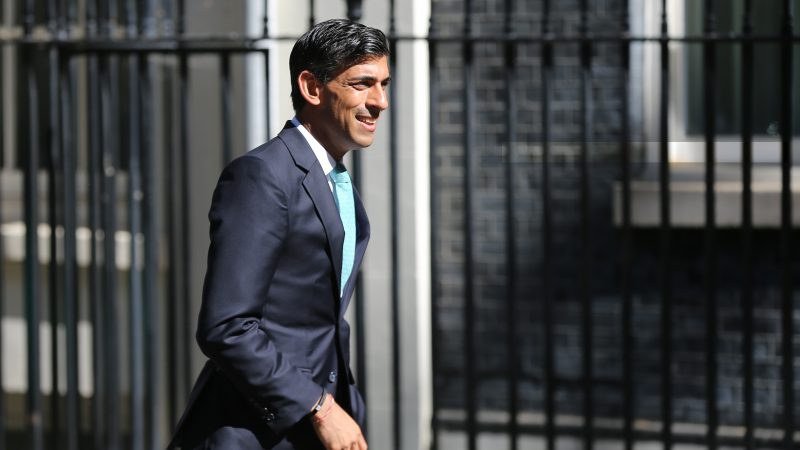
Even if Rishi Sunak does not become Prime Minister during the current leadership contest, the Conservatives will likely produce the country’s first ethnic minority and British Indian Prime Minister. This achievement, however, speaks less to the success of the Conservatives and more to the failure of the Labour Party.
From the 1930s up until the 2000s, Labour was the natural home of British Indians, as its MPs championed anti-imperialist policies and engaged in anti-racism endeavours on the domestic front. Labour was heavily involved with British Indian institutions such as the India League (now the 1928 Institute), with stalwarts such as Harold Laski and Michael Foot holding senior roles in the organisation. Legend has it that Michael Foot once said the first Prime Minister of Indian heritage would come from the party. Labour politicians often engaged with the fledgling Indian diaspora, and in 1964, Harold Wilson called out Conservative leader Alec Douglas-Home for the infamous racist election campaign run by local Conservatives in Smethwick.
Fast-forwarding to the 2021 Batley and Spen by-election, it was the Conservatives calling out Labour for dogwhistle racism. The leaflet in question was spread widely across WhatsApp and social media, compounding the angst within the British Indian community about Labour. There is a popular perception amongst the community that Labour operates a ‘hierarchy of racism’. Thus, the legitimate concerns of British Indians are less (electorally) important than other groups and therefore ignored or considered acceptable collateral damage.
But Labour’s failure is more than just an inability to recognise and address anti-Indian racism – it extends to the party’s fundamental approach towards ethnic minorities. Firstly, in contrast to the Conservatives, Labour tends to only field ethnic minority candidates in places where there is a high BAME population. This ‘ghettoisation’ of politics is seen as patronising by British Indians who by and large see themselves as ‘integrated’.
Secondly, the party rightfully stands by its internationalist principles. However, instead of helping comrades abroad, it imports problems from the Indian subcontinent that polarise the domestic community. All political parties rely on vote banks, but the raising (or not raising) of issues is often seen as one-sided and unsophisticated. For example, Labour MPs are quick to amplify alleged transgressions in relation to India, but when two Sikhs were horrifically murdered in Pakistan, Labour MPs fell silent.
Thirdly, compared to the Conservatives, the Labour leadership seldom engages with the community or its representatives, both civic and within the party. Furthermore, given the colonial legacy of the divide-and-rule policy in the subcontinent, there is a disdain amongst British Indians for Labour’s apparent politics on a basis of religious identity, as opposed to a cultural or civilisational one.
As a result, British Indians are not only driven away from voting for Labour, but the atmosphere of marginalisation makes the community less likely to join Labour and rise through the party ranks. The effects of this are evident from the recent local elections, where the party lost Harrow council and wards with a large British Indian population in other areas. At the next general election, there is also a serious risk of losing the ‘safe seat’ of Leicester East and other areas with a significant Indian diaspora community.
Research published in 2021 by the 1928 Institute – a University of Oxford spin-out – highlighted that Conservatives polled at 33% and Labour at 31% amongst the community. What makes matters interesting is that, according to the research, the top five policy priority areas for the community are: education, health, environment and climate change, domestic poverty, and equalities and human rights. Areas that align very much with Labour’s vision.
Labour’s complacency in assuming they automatically have the Indian vote has done them a disservice and, as a result, the UK’s largest ethnic minority has been courted successfully by the Conservatives. The Conservative leadership and the savvy Conservative Friends of India have made significant inroads in the community and have a strong pipeline of British Indian candidates. Such Conservative affiliate groups attract individuals from all demographics and, in particular, the youth. They have turned the phrase, ‘you can’t be what you can’t see’ on its head to something akin to: ‘Hey, we have loads of people like you! Join us!’
Nonetheless, Labour can wake up from its slumber and meaningfully re-engage with the community with some relatively easy solutions:
- Pursue genuine engagement with the Indian community in Britain through a working/functional affiliate organisation that acts as a bridge between the community and Labour;
- Take a principled stance against anti-Indian racism;
- Have an honest discussion and debate regarding the fall in Indian heritage representatives for Labour when it comes to local authorities, assemblies and the Commons;
- Capitalise on events that the community holds dear. For example, a meaningful event to mark 75 years of Indian independence – an easy win given that Indian independence happened under a Labour government; and
- Engage and utilise the community regarding the UK-India free trade agreement.
All hope is not lost. There is still time to win the trust and support of the community-at-large, particularly given that traditional Indian values and British Indian policy priorities align so well with Labour ideals. If you’d have asked me which party would have produced the first British Indian Prime Minister, I would have banked on it being the same party that also presided over Indian independence. Although our complacency has let that ship sail, if we learn from our lessons and make amends, we can weather this storm and cruise to victory.




More from LabourList
‘Energy efficiency changes must work for older private renters’
‘Labour’s creative destruction dilemma’
Economic stability for an uncertain world: Spring Statement 2026